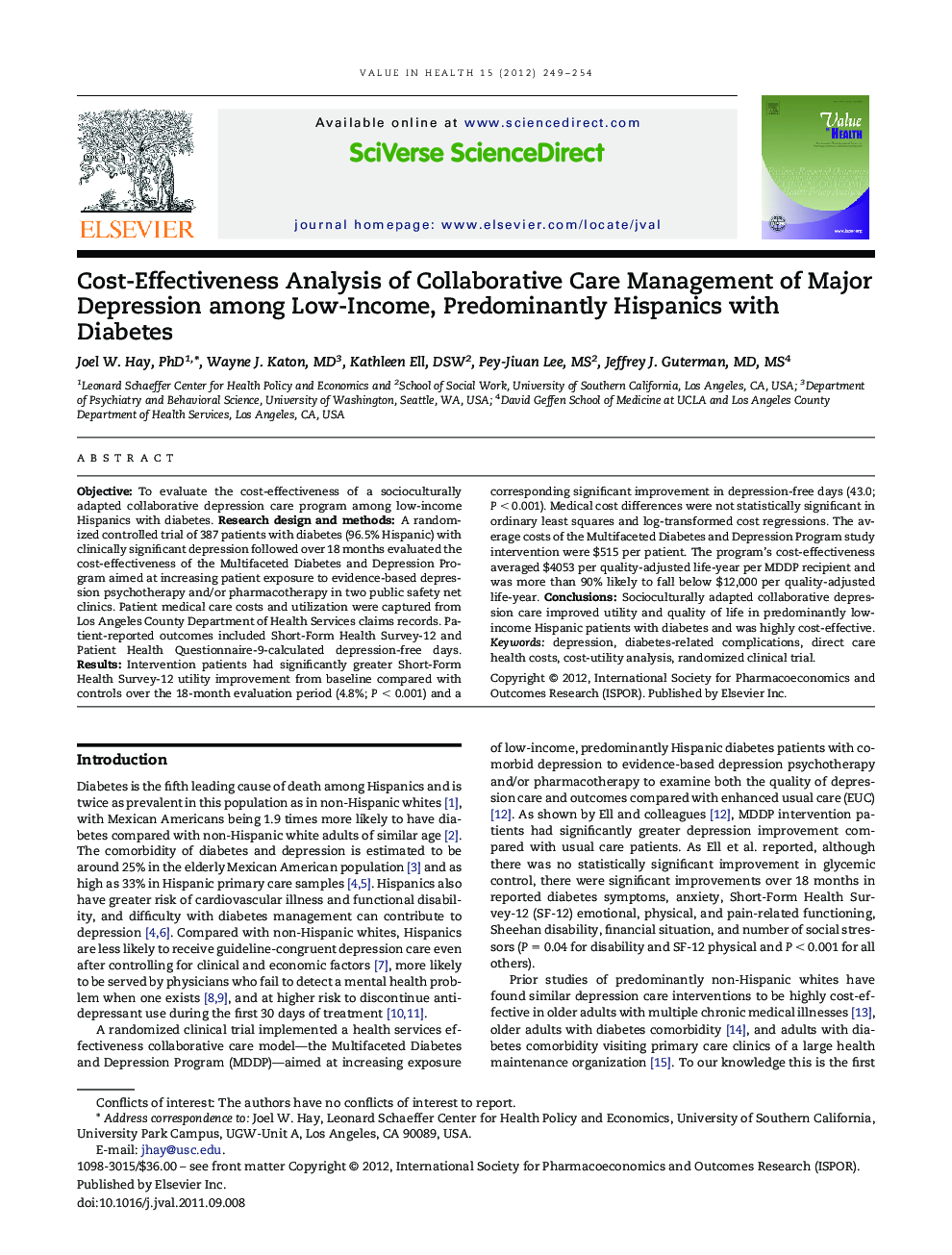| Article ID | Journal | Published Year | Pages | File Type |
|---|---|---|---|---|
| 988565 | Value in Health | 2012 | 6 Pages |
ObjectiveTo evaluate the cost-effectiveness of a socioculturally adapted collaborative depression care program among low-income Hispanics with diabetes.Research design and methodsA randomized controlled trial of 387 patients with diabetes (96.5% Hispanic) with clinically significant depression followed over 18 months evaluated the cost-effectiveness of the Multifaceted Diabetes and Depression Program aimed at increasing patient exposure to evidence-based depression psychotherapy and/or pharmacotherapy in two public safety net clinics. Patient medical care costs and utilization were captured from Los Angeles County Department of Health Services claims records. Patient-reported outcomes included Short-Form Health Survey-12 and Patient Health Questionnaire-9-calculated depression-free days.ResultsIntervention patients had significantly greater Short-Form Health Survey-12 utility improvement from baseline compared with controls over the 18-month evaluation period (4.8%; P < 0.001) and a corresponding significant improvement in depression-free days (43.0; P < 0.001). Medical cost differences were not statistically significant in ordinary least squares and log-transformed cost regressions. The average costs of the Multifaceted Diabetes and Depression Program study intervention were $515 per patient. The program's cost-effectiveness averaged $4053 per quality-adjusted life-year per MDDP recipient and was more than 90% likely to fall below $12,000 per quality-adjusted life-year.ConclusionsSocioculturally adapted collaborative depression care improved utility and quality of life in predominantly low-income Hispanic patients with diabetes and was highly cost-effective.
